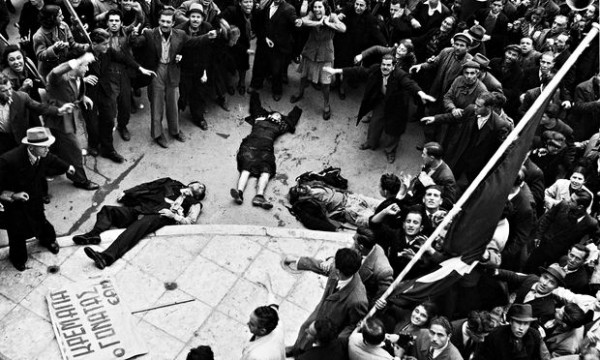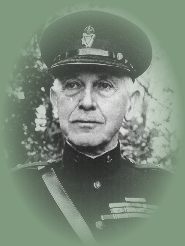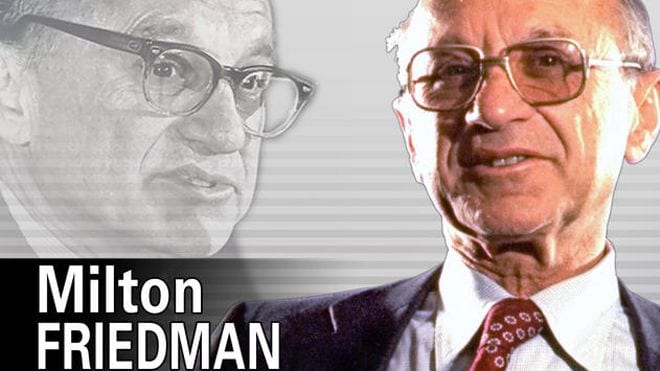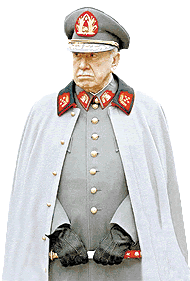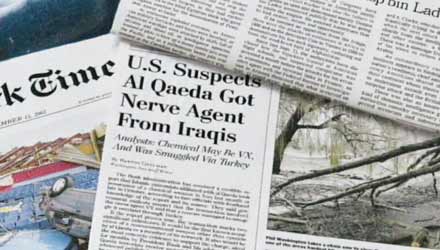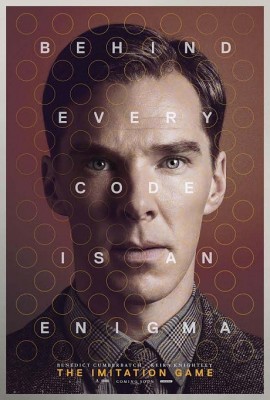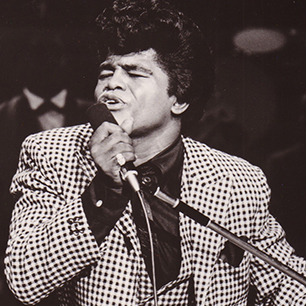Athens 1944: Britain’s dirty secret
[dropcap]WHEN [/dropcap]28 civilians were killed in Athens, it wasn’t the Nazis who were to blame, it was the British. Ed Vulliamy and Helena Smith reveal how Churchill’s shameful decision to turn on the partisans who had fought on our side in the war sowed the seeds for the rise of the far right in Greece today
“I can still see it very clearly, I have not forgotten,” says Títos Patríkios. “The Athens police firing on the crowd from the roof of the parliament in Syntagma Square. The young men and women lying in pools of blood, everyone rushing down the stairs in total shock, total panic.”
And then came the defining moment: the recklessness of youth, the passion of belief in a justice burning bright: “I jumped up on the fountain in the middle of the square, the one that is still there, and I began to shout: “Comrades, don’t disperse! Victory will be ours! Don’t leave. The time has come. We will win!”
“I was,” he says now, “profoundly sure, that we would win.” But there was no winning that day; just as there was no pretending that what had happened would not change the history of a country that, liberated from Adolf Hitler’s Reich barely six weeks earlier, was now surging headlong towards bloody civil war.
Even now, at 86, when Patríkios “laughs at and with myself that I have reached such an age”, the poet can remember, scene-for-scene, shot for shot, what happened in the central square of Greek political life on the morning of 3 December 1944.
This was the day, those 70 years ago this week, when the British army, still at war with Germany, opened fire upon – and gave locals who had collaborated with the Nazis the guns to fire upon – a civilian crowd demonstrating in support of the partisans with whom Britain had been allied for three years.
The crowd carried Greek, American, British and Soviet flags, and chanted: “Viva Churchill, Viva Roosevelt, Viva Stalin’” in endorsement of the wartime alliance.
Twenty-eight civilians, mostly young boys and girls, were killed and hundreds injured. “We had all thought it would be a demonstration like any other,” Patríkios recalls. “Business as usual. Nobody expected a bloodbath.”
Britain’s logic was brutal and perfidious: Prime minister Winston Churchill considered the influence of the Communist Party within the resistance movement he had backed throughout the war – the National Liberation Front, EAM – to have grown stronger than he had calculated, sufficient to jeopardise his plan to return the Greek king to power and keep Communism at bay. So he switched allegiances to back the supporters of Hitler against his own erstwhile allies.
There were others in the square that day who, like the 16-year-old Patríkios, would go on to become prominent members of the left. Míkis Theodorakis, renowned composer and iconic figure in modern Greek history, daubed a Greek flag in the blood of those who fell. Like Patríkios, he was a member of the resistance youth movement. And, like Patríkios, he knew his country had changed. Within days, RAF Spitfires and Beaufighters were strafing leftist strongholds as the Battle of Athens – known in Greece as the Dekemvriana – began, fought not between the British and the Nazis, but the British alongside supporters of the Nazis against the partisans. “I can still smell the destruction,” Patríkios laments. “The mortars were raining down and planes were targeting everything. Even now, after all these years, I flinch at the sound of planes in war movies.”
And thereafter Greece’s descent into catastrophic civil war: a cruel and bloody episode in British as well as Greek history which every Greek knows to their core – differently, depending on which side they were on – but which remains curiously untold in Britain, perhaps out of shame, maybe the arrogance of a lack of interest. It is a narrative of which the millions of Britons who go to savour the glories of Greek antiquity or disco-dance around the islands Mamma Mia-style, are unaware.
The legacy of this betrayal has haunted Greece ever since, its shadow hanging over the turbulence and violence that erupted in 2008 after the killing of a schoolboy by police – also called the Dekemvriana – and created an abyss between the left and right thereafter.
“The 1944 December uprising and 1946-49 civil war period infuses the present,” says the leading historian of these events, André Gerolymatos, “because there has never been a reconciliation. In France or Italy, if you fought the Nazis, you were respected in society after the war, regardless of ideology. In Greece, you found yourself fighting – or imprisoned and tortured by – the people who had collaborated with the Nazis, on British orders. There has never been a reckoning with that crime, and much of what is happening in Greece now is the result of not coming to terms with the past.”
Before the war, Greece was ruled by a royalist dictatorship whose emblem of a fascist axe and crown well expressed its dichotomy once war began: the dictator, General Ioannis Metaxas, had been trained as an army officer in Imperial Germany, while Greek King George II – an uncle of Prince Philip, Duke of Edinburgh – was attached to Britain. The Greek left, meanwhile, had been reinforced by a huge influx of politicised refugees and liberal intellectuals from Asia Minor, who crammed into the slums of Pireaus and working-class Athens.
Both dictator and king were fervently anti-communist, and Metaxas banned the Communist Party, KKE, interning and torturing its members, supporters and anyone who did not accept “the national ideology” in camps and prisons, or sending them into internal exile. Once war started, Metaxas refused to accept Mussolini’s ultimatum to surrender and pledged his loyalty to the Anglo-Greek alliance. The Greeks fought valiantly and defeated the Italians, but could not resist the Wehrmacht. By the end of April 1941, the Axis forces imposed a harsh occupation of the country. The Greeks – at first spontaneously, later in organised groups – resisted.
But, noted the British Special Operations Executive (SOE): “The right wing and monarchists were slower than their opponents in deciding to resist the occupation, and were therefore of little use.”
Britain’s natural allies were therefore EAM – an alliance of left wing and agrarian parties of which the KKE was dominant, but by no means the entirety – and its partisan military arm, ELAS.
There is no overstating the horror of occupation. Professor Mark Mazower’s book Inside Hitler’s Greece describes hideous bloccos or “round-ups” – whereby crowds would be corralled into the streets so that masked informers could point out ELAS supporters to the Gestapo and Security Battalions – which had been established by the collaborationist government to assist the Nazis – for execution. Stripping and violation of women was a common means to secure “confessions”. Mass executions took place “on the German model”: in public, for purposes of intimidation; bodies would be left hanging from trees, guarded by Security Battalion collaborators to prevent their removal. In response, ELAS mounted daily counterattacks on the Germans and their quislings. The partisan movement was born in Athens but based in the villages, so that Greece was progressively liberated from the countryside. The SOE played its part, famous in military annals for the role of Brigadier Eddie Myers and “Monty” Woodhouse in blowing up the Gorgopotomas viaduct in 1942 and other operations with the partisans – andartesin Greek.
By autumn 1944, Greece had been devastated by occupation and famine. Half a million people had died – 7% of the population. ELAS had, however, liberated dozens of villages and become a proto-government, administering parts of the country while the official state withered away. But after German withdrawal, ELAS kept its 50,000 armed partisans outside the capital, and in May 1944 agreed to the arrival of British troops, and to place its men under the officer commanding, Lt Gen Ronald Scobie.
On 12 October the Germans evacuated Athens. Some ELAS fighters, however, had been in the capital all along, and welcomed the fresh air of freedom during a six-day window between liberation and the arrival of the British. One partisan in particular is still alive, aged 92, and is a legend of modern Greece.
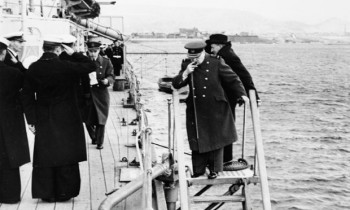
Commanding presence: Churchill leaving HMS Ajax to attend a conference ashore. Athens can be seen in the background. Photograph: Crown Copyright. IWM/Imperial War Museum
Glezos is a man of humbling greatness. On 30 May 1941, he climbed the Acropolis with another partisan and tore down the swastika flag that had been hung there a month before. He was arrested by the Gestapo in 1942, was tortured and as a result suffered from tuberculosis. He escaped and was re-arrested twice – the second time by collaborators. He recalls being sentenced to death in May 1944, before the Germans left Athens – “They told me my grave had already been dug”. Somehow he avoided execution and was then saved from a Greek courtmartial’s firing squad during the civil war period by international outcry led by General de Gaulle, Jean-Paul Sartre and the Archbishop of Canterbury, the Rev Geoffrey Fisher.”
Seventy years later, he is an icon of the Greek left who is also hailed as the greatest living authority on the resistance. “The English, to this day, argue that they liberated Greece and saved it from communism,” he says. “But that is the basic problem. They never liberated Greece. Greece had been liberated by the resistance, groups across the spectrum, not just EAM, on 12 October. I was there, on the streets – people were everywhere shouting: ‘Freedom!’ we cried, Laokratia! – ‘Power to the People!’”
The British duly arrived on 18 October, installed a provisional government under Georgios Papandreou and prepared to restore the king. “From the moment they came,” recalls Glezos, “the people and the resistance greeted them as allies. There was nothing but respect and friendship towards the British. We had no idea that we were already giving up our country and our rights.” It was only a matter of time before EAM walked out of the provisional government in frustration over demands that the partisans demobilise. The negotiations broke down on 2 December.
Official British thinking is reflected in War Cabinet papers and other documents kept in the Public Record Office at Kew. As far back as 17 August 1944, Churchill had written a “Personal and Top Secret” memo to US president Franklin Roosevelt to say that: “The War Cabinet and Foreign Secretary are much concerned about what will happen in Athens, and indeed Greece, when the Germans crack or when their divisions try to evacuate the country. If there is a long hiatus after German authorities have gone from the city before organised government can be set up, it seems very likely that EAM and the Communist extremists will attempt to seize the city.”
Not for nothing has the world learned to call Britain, “perfidious Albion.”
But what the freedom fighters wanted, insists Glezos “was what we had achieved during the war: a state ruled by the people for the people. There was no plot to take over Athens as Churchill always maintained. If we had wanted to do that, we could have done so before the British arrived.” During November, the British set about building the new National Guard, tasked to police Greece and disarm the wartime militias. In reality, disarmament applied to ELAS only, explains Gerolymatos, not to those who had collaborated with the Nazis. Gerolymatos writes in his forthcoming book, The International Civil War, about how “in the middle of November, the British started releasing Security Battalion officers… and soon some of them were freely walking the streets of Athens wearing new uniforms… The British army continued to provide protection to assist the gradual rehabilitation of the former quisling units in the Greek army and police forces.” An SOE memo urged that “HMG must not appear to be connected with this scheme.”
In conversation, Gerolymatos says: “So far as ELAS could see, the British had arrived, and now some senior officers of the Security Battalions and Special Security Branch [collaborationist units which had been integrated into the SS] were seen walking freely in the streets. Athens in 1944 was a small place, and you could not miss these people. Senior British officers knew exactly what they were doing, despite the fact that the ordinary soldiers of the former Security Battalions were the scum of Greece”. Gerolymatos estimates that 12,000 Security Battalionists were released from Goudi prison during the uprising to join the National Guard, and 228 had been reinstated in the army.
Any British notion that the Communists were poised for revolution fell within the context of the so-called Percentages Agreement, forged between Churchill and Soviet Commissar Josef Stalin at the code-named “Tolstoy Conference” in Moscow on 9 October 1944. Under the terms agreed in what Churchill called “a naughty document”, southeast Europe was carved up into “spheres of influence”, whereby – broadly – Stalin took Romania and Bulgaria, while Britain, in order to keep Russia out of the Mediterranean, took Greece. The obvious thing to have done, argues Gerolymatos, “would have been to incorporate ELAS into the Greek army. The officers in ELAS, many holding commissions in the pre-war Greek army, presumed this would happen – like De Gaulle did with French communists fighting in the resistance: ‘France is liberated, now let’s go and fight Germany!’
“But the British and the Greek government in exile decided from the outset that ELAS officers and men would not be admitted into the new army. Churchill wanted a showdown with the KKE so as to be able to restore the king. Churchill believed that a restoration would result in the return of legitimacy and bring back the old order. EAM-ELAS, regardless of its relationship to the KKE, represented a revolutionary force, and change.”
Meanwhile, continues Gerolymatos: “The Greek communists had decided not to try to take over the country, as least not until late November/early December 1944. The KKE wanted to push for a left-of-centre government and be part of it, that’s all.” Echoing Glezos, he says: “If they had wanted a revolution, they would not have left 50,000 armed men outside the capital after liberation – they’d have brought them in.”
“By recruiting the collaborators, the British changed the paradigm, signalling that the old order was back. Churchill wanted the conflict,” says Gerolymatos. “We must remember: there was no Battle for Greece. A large number of the British troops that arrived were administrative, not line units. When the fighting broke out in December, the British and the provisional government let the Security Battalions out of Goudi; they knew how to fight street-to-street because they’d done it with the Nazis. They’d been fighting ELAS already during the occupation and resumed the battle with gusto.”
The morning of Sunday 3 December was a sunny one, as several processions of Greek republicans, anti-monarchists, socialists and communists wound their way towards Syntagma Square. Police cordons blocked their way, but several thousand broke through; as they approached the square, a man in military uniform shouted: “Shoot the bastards!” The lethal fusillade – from Greek police positions atop the parliament building and British headquarters in the Grande Bretagne hotel – lasted half an hour. By noon, a second crowd of demonstrators entered the square, until it was jammed with 60,000 people. After several hours, a column of British paratroops cleared the square; but the Battle of Athens had begun, and Churchill had his war.
Manolis Glezos was sick that morning, suffering from tuberculosis. “But when I heard what had happened, I got off my sick bed,” he recalls. The following day, Glezos was roaming the streets, angry and determined, disarming police stations. By the time the British sent in an armoured division he and his comrades were waiting.
“I note the fact,” he says, “that they would rather use those troops to fight our population than German Nazis!” By the time British tanks rolled in from the port of Pireaus, he was lying in wait: “I remember them coming up the Sacred Way. We were dug in a trench. I took out three tanks,” he says. “There was much bloodshed, a lot of fighting, I lost many very good friends. It was difficult to strike at an Englishman, difficult to kill a British soldier – they had been our allies. But now they were trying to destroy the popular will, and had declared war on our people”.
At battle’s peak, Glezos says, the British even set up sniper nests on the Acropolis. “Not even the Germans did that. They were firing down on EAM targets, but we didn’t fire back, so as not [to harm] the monument.”
On 5 December, Lt Gen Scobie imposed martial law and the following day ordered the aerial bombing of the working-class Metz quarter. “British and government forces,” writes anthropologist Neni Panourgia in her study of families in that time, “having at their disposal heavy armament, tanks, aircraft and a disciplined army, were able to make forays into the city, burning and bombing houses and streets and carving out segments of the city… The German tanks had been replaced by British ones, the SS and Gestapo officers by British soldiers.” The house belonging to actor Mimis Fotopoulos, she writes, was burned out with a portrait of Churchill above the fireplace.
“I recall shouting slogans in English, during one battle in Koumoundourou Square because I had a strong voice and it was felt I could be heard,” says poet Títos Patríkios as we talk in his apartment. “‘We are brothers, there’s nothing to divide us, come with us!’ That’s what I was shouting in the hope that they [British troops] would withdraw. And right at that moment, with my head poked above the wall, a bullet brushed over my helmet. Had I not been yanked down by Evangelos Goufas[another poet], who was there next to me, I would have been dead.”
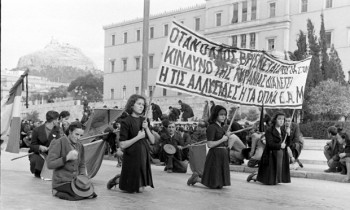
On their knees: women protest against the shootings, which led to more than a month of street fighting in Athens. Photograph: Dmitri Kessel/The LIFE Picture Collection/Getty
He can now smile at the thought that only months after the killing in the square he was back at school, studying English on a British Council summer course. “We were enemies, but at the same time friends. In one battle I came across an injured English soldier and I took him to a field hospital. I gave him my copy of Robert Louis Stevenson’s Kidnapped which I remember he kept.”
It is illuminating to read the dispatches by British soldiers themselves, as extracted by the head censor, Capt JB Gibson, now stored at the Public Record Office. They give no indication that the enemy they fight was once a partisan ally, indeed many troops think they are fighting a German-backed force. A warrant officer writes: “Mr Churchill and his speech bucked us no end, we know now what we are fighting for and against, it is obviously a Hun element behind all this trouble.” From “An Officer”: “You may ask: why should our boys give their lives to settle Greek political differences, but they are only Greek political differences? I say: no, it is all part of the war against the Hun, and we must go on and exterminate this rebellious element.”
Cabinet papers at Kew trace the reactions in London: a minute of 12 December records Harold Macmillan, political advisor to Field Marshal Alexander, returning from Athens to recommend “a proclamation of all civilians against us as rebels, and a declaration those found in civilian clothes opposing us with weapons were liable to be shot, and that 24 hours notice should be given that certain areas were to be wholly evacuated by the civilian population” – ergo, the British Army was to depopulate and occupy Athens. Soon, reinforced British troops had the upper hand and on Christmas Eve Churchill arrived in the Greek capital in a failed bid to make peace on Christmas Day.
“I will now tell you something I have never told anyone,” says Manolis Glezos mischievously. On the evening of 25 December Glezos would take part in his most daring escapade, laying more than a ton of dynamite under the hotel Grande Bretagne, where Lt Gen Scobie had headquartered himself. “There were about 30 of us involved. We worked through the tunnels of the sewerage system; we had people to cover the grid-lines in the streets, so scared we were that we’d be heard. We crawled through all the shit and water and laid the dynamite right under the hotel, enough to blow it sky high.
“I carried the fuse wire myself, wire wound all around me, and I had to unravel it. We were absolutely filthy, covered [in excrement] and when we got out of the sewerage system I remember the boys washing us down. I went over to the boy with the detonator; and we waited, waited for the signal, but it never came. Nothing. There was no explosion. Then I found out: at the last minute EAM found out that Churchill was in the building, and put out an order to call off the attack. They’d wanted to blow up the British command, but didn’t want to be responsible for assassinating one of the big three.”
At the end of the Dekemvriana, thousands had been killed; 12,000 leftists rounded up and sent to camps in the Middle East. A truce was signed on 12 February, the only clause of which that was even partially honoured was the demobilisation of ELAS. And so began a chapter known in Greek history as the “White Terror”, as anyone suspected of helping ELAS during the Dekemvriana or even Nazi occupation was rounded up and sent to a gulag of camps established for their internment, torture, often murder – or else repentance, as under the Metaxas dictatorship.
Títos Patríkios is not the kind of man who wants the past to impinge on the present. But he does not deny the degree to which this history has done just that – affecting his poetry, his movement, his quest to find “le mot juste”. This most measured and mild-mannered of men would spend years in concentration camps, set up with the help of the British as civil war beckoned. With imprisonment came hard labour, and with hard labour came torture, and with exile came censorship. “The first night on Makronissos [the most infamous camp] we were all beaten very badly.
“I spent six months there, mostly breaking stones, picking brambles and carrying sand. Once, I was made to stand for 24 hours after it had been discovered that a newspaper had published a letter describing the appalling conditions in the camp. But though I had written it, and had managed to pass it on to my mother, I never admitted to doing so and throughout my time there I never signed a statement of repentance.”
Patríkios was among the relatively fortunate; thousands of others were executed, usually in public, their severed heads or hanging bodies routinely displayed in public squares. His Majesty’s embassy in Athens commented by saying the exhibition of severed heads “is a regular custom in this country which cannot be judged by western European standards”.
The name of the man in command of the “British Police Mission” to Greece is little known. Sir Charles Wickham had been assigned by Churchill to oversee the new Greek security forces – in effect, to recruit the collaborators. Anthropologist Neni Panourgia describes Wickham as “one of the persons who traversed the empire establishing the infrastructure needed for its survival,” and credits him with the establishment of one of the most vicious camps in which prisoners were tortured and murdered, at Giaros.
From Yorkshire, Wickham was a military man who served in the Boer War, during which concentration camps in the modern sense were invented by the British. He then fought in Russia, as part of the allied Expeditionary Force sent in 1918 to aid White Russian Czarist forces in opposition to the Bolshevik revolution. After Greece, he moved on in 1948 to Palestine. But his qualification for Greece was this: Sir Charles was the first Inspector General of the Royal Ulster Constabulary, from 1922 to 1945.
The RUC was founded in 1922, following what became known as the Belfast pogroms of 1920-22, when Catholic streets were attacked and burned. It was, writes the historian Tim Pat Coogan, “conceived not as a regular police body, but as a counter-insurgency one… The new force contained many recruits who joined up wishing to be ordinary policemen, but it also contained murder gangs headed by men like a head constable who used bayonets on his victims because it prolonged their agonies.”
As the writer Michael Farrell found out when researching his book Arming the Protestants, much material pertaining to Sir Charles’s incorporation of these UVF and Special Constabulary militiamen into the RUC has been destroyed, but enough remains to give a clear indication of what was happening. In a memo written by Wickham in November 1921, before the formation of the RUC, and while the partition treaty of December that year was being negotiated, he had addressed “All County Commanders” as follows: “Owing to the number of reports which has been received as to the growth of unauthorised loyalist defence forces, the government have under consideration the desirability of obtaining the services of the best elements of these organisations.”
Coogan, Ireland’s greatest and veteran historian, stakes no claim to neutrality over matters concerning the Republic and Union, but historical facts are objective and he has a command of those that none can match. We talk at his home outside Dublin over a glass of whiskey appositely called “Writer’s Tears”.
“It’s the narrative of empire,” says Coogan, “and, of course, they applied it to Greece. That same combination of concentration camps, putting the murder gangs in uniform, and calling it the police. That’s colonialism, that’s how it works. You use whatever means are necessary, one of which is terror and collusion with terrorists. It works.
“Wickham organised the RUC as the armed wing of Unionism, which is something it remained thereafter,” he says. “How long was it in the history of this country before the Chris Patten report of 1999, and Wickham’s hands were finally prised off the police? That’s a hell of a long piece of history – and how much suffering, meanwhile?”
The head of MI5 reported in 1940 that “in the personality and experience of Sir Charles Wickham, the fighting services have at their elbow a most valuable friend and counsellor”. When the intelligence services needed to integrate the Greek Security Battalions – the Third Reich’s “Special Constabulary” – into a new police force, they had found their man.
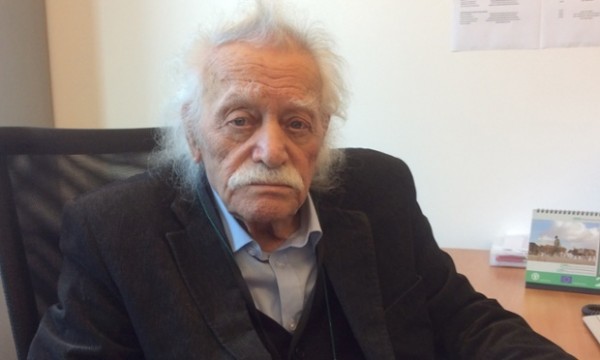
‘I carried the fuse wire myself: Manolis Glezos, senior MEP and ‘a man of humbling greatness’ in Brussels. Helena Smith Photograph: Helena Smith/Observer ‘I carried the fuse wire myself: Manolis Glezos, senior MEP and ‘a man of humbling greatness’ in Brussels. Helena Smith Photograph: Helena Smith/Observer
Gerolymatos adds: “The British – and that means Wickham – knew who these people were. And that’s what makes it so frightening. They were the people who had been in the torture chambers during occupation, pulling out the fingernails and applying thumbscrews.” By September 1947, the year the Communist Party was outlawed, 19,620 leftists were held in Greek camps and prisons, 12,000 of them in Makronissos, with a further 39,948 exiled internally or in British camps across the Middle East. There exist many terrifying accounts of torture, murder and sadism in the Greek concentration camps – one of the outrageous atrocities in postwar Europe. Polymeris Volgis of New York University describes how a system of repentance was introduced as though by a “latter-day secular Inquisition”, with confessions extracted through “endless and violent degradation”.
Women detainees would have their children taken away until they confessed to being “Bulgarians” and “whores”. The repentance system led Makronissos to be seen as a “school” and “National University” for those now convinced that “Our life belongs to Mother Greece,’ in which converts were visited by the king and queen, ministers and foreign officials. “The idea”, says Patríkios, who never repented, “was to reform and create patriots who would serve the homeland.”
Minors in the Kifissa prison were beaten with wires and socks filled with concrete. “On the boys’ chests, they sewed name tags”, writes Voglis, “with Slavic endings added to the names; many boys were raped”. A female prisoner was forced, after a severe beating, to stand in the square of Kastoria holding the severed heads of her uncle and brother-in-law. One detainee at Patras prison in May 1945 writes simply this: “They beat me furiously on the soles of my feet until I lost my sight. I lost the world.”
Manolis Glezos has a story of his own. He produces a book about the occupation, and shows a reproduction of the last message left by his brother Nikos, scrawled on the inside of a beret. Nikos was executed by collaborators barely a month before the Germans evacuated Greece. As he was being driven to the firing squad, the 19-year-old managed to throw the cap he was wearing from the window of the car. Subsequently found by a friend and restored to the family, the cap is among Glezos’s most treasured possessions.
Scribbled inside, Nikos had written: “Beloved mother. I kiss you. Greetings. Today I am going to be executed, falling for the Greek People. 10-5-44.”
Nowhere else in newly liberated Europe were Nazi sympathisers enabled to penetrate the state structure – the army, security forces, judiciary – so effectively. The resurgence of neo-fascism in the form of present-day far-right party Golden Dawn has direct links to the failure to purge the state of right-wing extremists; many of Golden Dawn’s supporters are descendants of Battalionists, as were the “The Colonels” who seized power in 1967.
Glezos says: “I know exactly who executed my brother and I guarantee they all got off scot-free. I know that the people who did it are in government, and no one was ever punished.” Glezos has dedicated years to creating a library in his brother’s honour. In Brussels, he unabashedly asks interlocutors to contribute to the fund by popping a “frango” (a euro) into a silk purse. It is, along with the issue of war reparations, his other great campaign, his last wish: to erect a building worthy of the library that will honour Nikos. “The story of my brother is the story of Greece,” he says.
There is no claim that ELAS, or the Democratic Army of Greece which replaced it, were hapless victims. There was indeed a “Red Terror” in response to the onslaught, and on the retreat from Athens, ELAS took some 15,000 prisoners with them. “We did some killing,” concedes Glezos, “and some people acted out of revenge. But the line was not to kill civilians.”
In December 1946, Greek prime minister Konstantinos Tsaldaris, faced with the probability of British withdrawal, visited Washington to seek American assistance. In response, the US State Department formulated a plan for military intervention which, in March 1947, formed the basis for an announcement by President Truman of what became known as the Truman Doctrine, to intervene with force wherever communism was considered a threat. All that had passed in Greece on Britain’s initiative was the first salvo of the Cold War.
Glezos still calls himself a communist. But like Patríkios, who rejected Stalinism, he believes that communism, as applied to Greece’s neighbours to the north, would have been a catastrophe. He recalls how he even gave Nikita Khrushchev, the Soviet leader who would de-Stalinise the Soviet Union “an earful about it all”. The occasion arose when Khrushchev invited Glezos – who at the height of the Cold War was a hero in the Soviet Union, honoured with a postage stamp bearing his image – to the Kremlin. It was 1963 and Khrushchev was in talkative mood. Glezos wanted to know why the Red Army, having marched through Bulgaria and Romania, stopped at the Greek border. Perhaps the Russian leader could explain.
“He looked at me and said, ‘Why?’
“I said: ‘Because Stalin didn’t behave like a communist. He divided up the world with others and gave Greece to the English.’ Then I told him what I really thought, that Stalin had been the cause of our downfall, the root of all evil. All we had wanted was a state where the people ruled, just like our [then] government in the mountains, where you can still see the words ‘all powers spring from the people and are executed by the people’ inscribed into the hills. What they wanted, and created, was rule by the party.”
Khrushchev, says Glezos, did not openly concur. “He sat and listened. But then after our meeting he invited me to dinner, which was also attended by Leonid Brezhnev [who succeeded Khrushchev in 1964] and he listened for another four and a half hours. I have always taken that for tacit agreement.”

Taking charge: Lt Gen Ronald Scobie (centre) who, on 5 December 1944, imposed martial law and ordered the aerial bombing of the working-class Metz quarter of Athens. Photograph: Dmitri Kessel/The LIFE Picture Collection/Getty
For Patríkios, it was not until the Soviet invasion of Hungary in 1956, that the penny dropped: a line had been drawn across the map, agreed by Churchill and Stalin. “When I saw the west was not going to intervene [during the Budapest uprising] I realised what had happened – the agreed ‘spheres of influence’. And later, I understood that the Dekemvriana was not a local conflict, but the beginning of the Cold War that had started as a warm war here in Greece.”
Patríkios returned to Athens as a detainee “on leave” and was eventually granted a passport in 1959. Upon procuring it, he immediately got on a ship to Paris where he would spend the next five years studying sociology and philosophy at the Sorbonne. “In politics there are no ethics,” he says, “especially imperial politics.”
It’s the afternoon of 25 January 2009. The tear gas that has drenched Athens – a new variety, imported from Israel – clears. A march in support of a Bulgarian cleaner, whose face has been disfigured in an acid attack by neo-fascists, has been broken up by riot police after hours of street-fighting.
Back in the rebel-held quarter of Exarcheia, a young woman called Marina pulls off her balaclava and draws air. Over coffee, she answers the question: why Greece? Why is it so different from the rest of Europe in this regard – the especially bitter war between left and right? “Because,” she replies, “of what was done to us in 1944. The persecution of the partisans who fought the Nazis, for which they were honoured in France, Italy, Belgium or the Netherlands – but for which, here, they were tortured and killed on orders from your government.”
She continues: “I come from a family that has been detained and tortured for two generations before me: my grandfather after the Second World War, my father under the Junta of the colonels – and now it could be me, any day now. We are the grandchildren of the andartes, and our enemies are Churchill’s Greek grandchildren.”
“The whole thing”, spits Dr Gerolymatos, “was for nothing. None of this need have happened, and the British crime was to legitimise people whose record under occupation by the Third Reich put them beyond legitimacy. It happened because Churchill believed he had to bring back the Greek king. And the last thing the Greek people wanted or needed was the return of a de-frocked monarchy backed by Nazi collaborators. But that is what the British imposed, and it has scarred Greece ever since.”
“All those collaborators went into the system,” says Manilos Glezos. “Into the government mechanism – during and after the civil war, and their sons went into the military junta. The deposits remain, like malignant cells in the system. Although we liberated Greece, the Nazi collaborators won the war, thanks to the British. And the deposits remain, like bacilli in the system.”
But there is one last thing Glezos would like to make clear. “You haven’t asked: ‘Why do I go on? Why I am doing this when I am 92 years and two months old?’ he says, fixing us with his eyes. “I could, after all, be sitting on a sofa in slippers with my feet up,” he jests. “So why do I do this?”
He answers himself: “You think the man sitting opposite you is Manolis but you are wrong. I am not him. And I am not him because I have not forgotten that every time someone was about to be executed, they said: ‘Don’t forget me. When you say good morning, think of me. When you raise a glass, say my name.’ And that is what I am doing talking to you, or doing any of this. The man you see before you is all those people. And all this is about not forgetting them.”
Timeline: the battle between left and right
Late summer 1944 German forces withdraw from most of Greece, which is taken over by local partisans. Most of them are members of ELAS, the armed wing of the National Liberation Front, EAM, which included the Communist KKE party
October 1944 Allied forces, led by General Ronald Scobie, enter Athens, the last German-occupied area, on 13 October. Georgios Papandreou returns from exile with the Greek government
2 December 1944 Rather than integrate ELAS into the new army, Papandreou and Scobie demand the disarmament of all guerrilla forces. Six members of the new cabinet resign in protest
3 December 1944 Violence in Athens after 200,000 march against the demands. More than 28 are killed and hundreds are injured. The 37-day Dekemvrianá begins. Martial law is declared on 5 December
January/February 1945 Gen Scobie agrees to a ceasefire in exchange for ELAS withdrawal. In February the Treaty of Varkiza is signed by all parties. ELAS troops leave Athens with 15,000 prisoners
1945/46 Right-wing gangs kill more than 1,100 civilians, triggering civil war when government forces start battling the new Democratic Army of Greece (DSE), mainly former ELAS soldiers
1948-49 DSE suffers a catastrophic defeat in the summer of 1948, with nearly 20,000 killed. In July 1949 Tito closes the Yugoslav border, denying DSE shelter. Ceasefire signed on 16 October 1949
21 April 1967 Right-wing forces seize power in a coup d’état. The junta lasts until 1974. Only in 1982 are communist veterans who had fled overseas allowed to return to Greece
NOTICE: YOUR SUBSCRIPTIONS (SIGNUPS TO THE GREANVILLE POST BULLETIN) ARE COMPLETELY FREE, ALWAYS. AND WE DO NOT SELL OR RENT OUR EMAIL ADDRESS DATABASES—EVER. That’s a guarantee.
